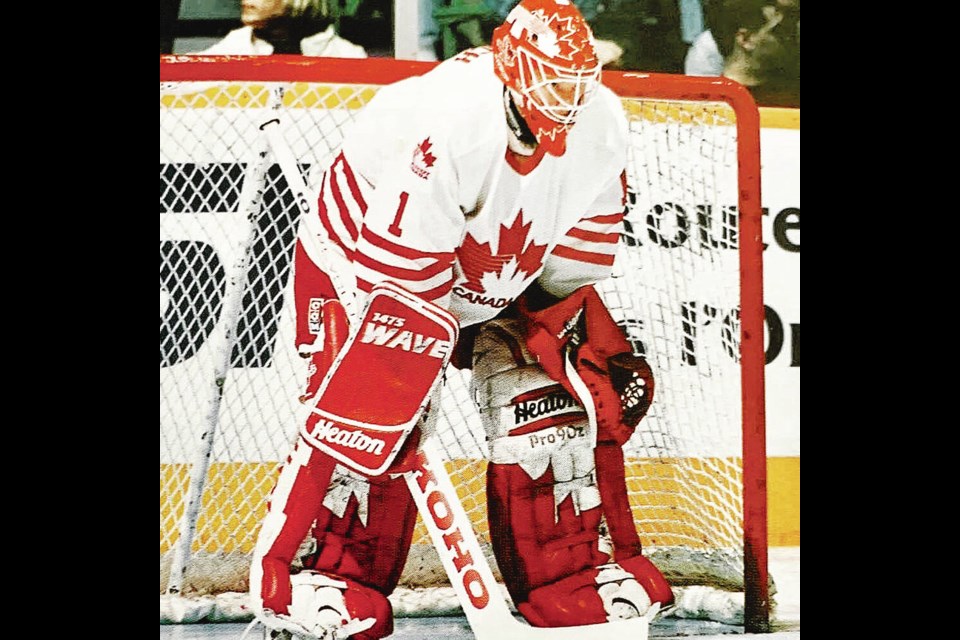Everything should have been sunshine and optimism for Corey Hirsch.
He was 22, living in New York and had already hoisted the Stanley Cup and won a silver medal with Canada in the 1994 Lillehammer Winter Olympics.
But instead, he fell into a dark, ugly place.
“I got to live out my wildest childhood dreams, next to guys like Mark Messier and Brian Leetch, in the greatest city in the world. And it meant nothing to me. Less than nothing … with my unrelenting, endless, endless, endless thoughts,” said Hirsch, in an interview with the Times Colonist.
The former NHL goaltender has chronicled his battle with obsessive compulsive disorder in a new book, The Save of my Life: My Journey out of the Dark, and will be speaking and signing copies of his book Wednesday at 7 p.m. at Bolen Books.
There were some days when he was so low, he couldn’t get out of bed, he said.
One night, he was in his sports car in Kamloops, the town where he had played junior in the Western Hockey League, and thinking: “I’m so tired. Please God just let this all end.”
He gunned the vehicle, aiming at an embankment into the North Thompson River. But something sent his foot to the brake at the last possible moment, and the car slid to a sudden halt just feet from the cliff’s edge.
He sat there “sobbing sobbing … somebody help me. For the love of God, somebody please help me.”
He admits reaching out for help in the macho world of professional sports was the hardest thing he has ever had to do.
While there is still a stigma attached to mental illness, Hirsch said, it’s not weakness.
Nobody would accuse American multi-medallist Olympic swimming legend Michael Phelps, who is also open about his mental-health issues, of being weak, he said.
“I speak to pipeline workers and company executives. [Mental illness] does not discriminate and cuts across all societal lines. I want to let people know that if you open up and let other people know what you are going through, there is help out there, and it gets better. Don’t hide it away. It’s OK to get help.”
Hirsch said education is key. “I didn’t know what it was or what I had. There is a lack of knowledge and education about mental health,” he said.
“I thought to myself, if I ever get better, I want to do something to raise awareness and help others. This book is to educate. This is not a hockey book — it’s a mental-health book.”




